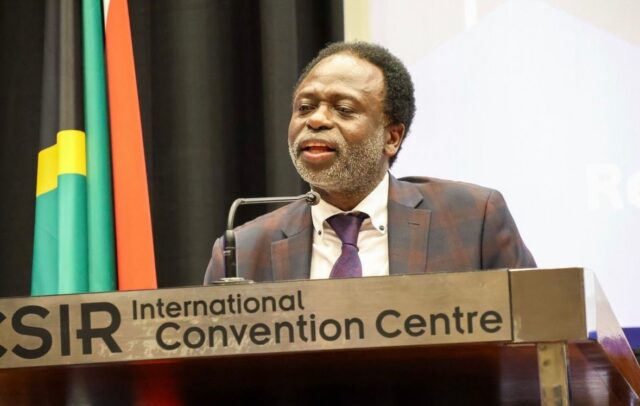Professor Tshilidzi Marwala, the UN Under-Secretary General and Rector of United Nations University, warns that the emergence of artificial intelligence (AI) presents both opportunities and challenges. While AI could significantly enhance how governments deliver services, it also raises ethical concerns that require proper governance and legislation.
On the second day of the 2024 edition of the ICEGOV Conference, currently taking place in the City of Tshwane, Gauteng province, Professor Marwala delivered the cautionary keynote lecture on AI today, October 2, 2024.
“As we stand in the midst of the Fourth Industrial Revolution (4IR), technological advances are reshaping our economies, industries, and societies at an unprecedented pace,†observed Professor Marwala.
While industries have been quick to appropriate AI for commercial exploitation, the public sector has been slow in its adoption of this groundbreaking technology to address the pressing service delivery challenges of the day, said the South African-born UN Under-Secretary General and former Vice-Chancellor of the University of Johannesburg.
According to Professor Marwala, data from the Sustainable Development Goals (SDGs) Summit in 2023 show alarming under-performance in achieving the 2030 Agenda goals, with only 17% of the 169 indicators met.
The rest of the SDGs show that the performance is either at the same level as in 2014/15 or seriously lagging, said Professor Marwala.
“IA has an important role to play and one study [on SDGs and technology] suggests that artificial intelligence can enable 79 percent of all SDGs.
Professor Marwala said AI has the capacity to address problems such as poverty, inequality, and climate change, underscoring its significance in sustainable development. He further urged governments to take utmost care in the deployment of AI across all sectors of society.
“As we look to AI to support the 2023 Agenda, we must also acknowledge that technological advancement without responsibility could exacerbate the very inequalities that we seek to eliminate,†he cautioned.
Professor Marwala suggested that nations adopt governance regimes that address data, algorithms, and application, such as in health and education.
He advised that the UN Declaration of Human Rights and the UN Charter should serve as the foundation for establishing the values of artificial intelligence.
In addition to the two guiding documents and the development of appropriate mechanisms and structures, Professor Marwala stressed the centrality of human and organisational behaviour in the governance regime of AI and related technologies.
He concluded, “The field of behavioural science is crucial because people create and use AI technology.”
Home Governance AI is a double-edged sword that requires proper governance handling, according to...









